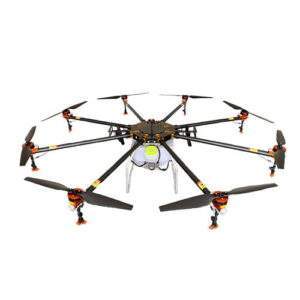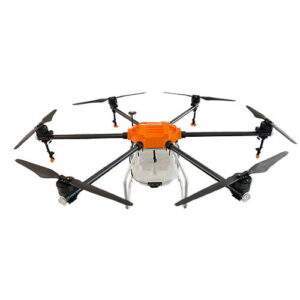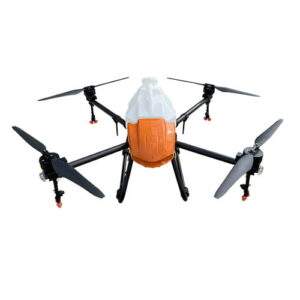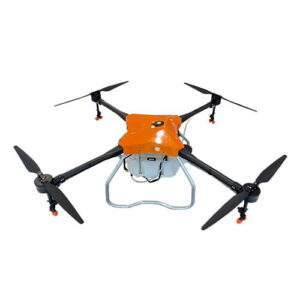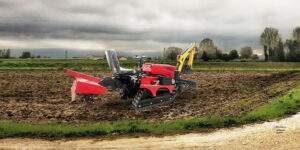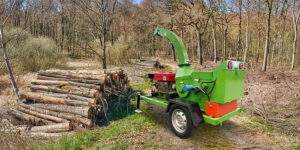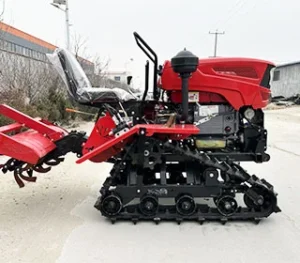How Pesticide Sprayer Drones Revolutionize Modern Agriculture
Introduction
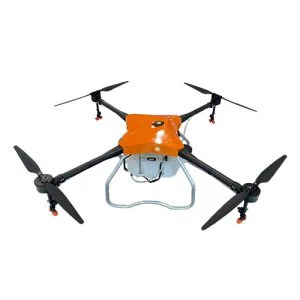
In recent years, the agricultural industry has witnessed significant advancements with the integration of technology. One of the most transformative innovations is the pesticide sprayer drone. These drones are changing the way farmers manage pests and optimize crop yields. This blog explores how pesticide sprayer drones revolutionize modern agriculture, highlighting their features, benefits, and impact on the industry.
Understanding Pesticide Sprayer Drones
What is a Pesticide Sprayer Drone?
A pesticide sprayer drone is an unmanned aerial vehicle (UAV) equipped with specialized equipment for applying pesticides and fertilizers over crops. These drones are designed to fly over agricultural fields, spraying chemicals with precision and efficiency. Their advanced technology allows for targeted application, reducing waste and improving effectiveness.
Key Features of Pesticide Sprayer Drones
- Precision Spraying: Equipped with GPS and advanced sensors, these drones can target specific areas, minimizing overspray and ensuring uniform coverage.
- Adjustable Nozzles: Drones often feature adjustable nozzles that can be tailored for different types of pesticides and varying crop densities.
- Real-Time Monitoring: Many drones offer real-time data collection and monitoring, allowing farmers to assess the application process and make necessary adjustments.
Benefits of Pesticide Sprayer Drones
Increased Efficiency
Pesticide sprayer drones significantly increase the efficiency of pesticide application. They can cover large areas quickly and accurately, reducing the time and labor required for traditional spraying methods. This efficiency leads to faster pest management and improved crop health.
Reduced Chemical Use
The precision of sprayer drones minimizes chemical waste. By targeting specific areas and avoiding overlap, these drones reduce the amount of pesticide needed, which is both cost-effective and environmentally friendly.
Improved Crop Health
By ensuring even and precise application, sprayer drones help maintain optimal crop health. They prevent over-application, which can lead to chemical burn and crop damage, thus enhancing overall crop yield and quality.
Access to Hard-to-Reach Areas
Drones can easily access hard-to-reach areas, such as steep slopes or densely planted fields. This capability ensures that every part of the field receives adequate treatment, improving overall pest control.
Impact and Benefits of Drones Across Different Sectors
| Sector | Impact of Drones | Benefits | Examples |
|---|---|---|---|
| Agriculture | Enhanced crop monitoring, precision spraying | Increased yield, reduced chemical use | Precision farming, pest management |
| Construction | Site surveying, progress monitoring | Improved accuracy, reduced labor costs | Building inspections, site planning |
| Emergency Services | Search and rescue operations, disaster assessment | Faster response times, better situational awareness | Search missions, damage assessment |
| Environmental Monitoring | Wildlife tracking, environmental impact studies | Better data collection, conservation efforts | Forest monitoring, pollution tracking |
| Real Estate | Aerial property views, virtual tours | Enhanced marketing, better property assessments | Property listings, site showcases |
| Film and Photography | High-quality aerial footage, unique perspectives | Creative visuals, cost-effective filming | Cinematic shots, event coverage |
| Logistics | Package delivery, warehouse management | Faster deliveries, efficient inventory control | Last-mile delivery, supply chain management |
Applications in Modern Agriculture
Crop Management
In crop management, sprayer drones provide precise application of pesticides and fertilizers, improving the health of crops and maximizing yields. They are particularly useful for large-scale farms where traditional methods may be less efficient.
Pest and Disease Control
Drones are instrumental in controlling pests and diseases by providing targeted treatment. This targeted approach helps in managing infestations effectively, reducing the need for broad-spectrum chemicals.
Fertilization
In addition to pesticide application, drones are also used for fertilization. They can deliver nutrients directly to the crops, ensuring even distribution and reducing wastage.
Field Monitoring
Pesticide sprayer drones equipped with cameras and sensors offer real-time monitoring of crop conditions. This data helps farmers make informed decisions about pest control and crop management.
Challenges and Considerations
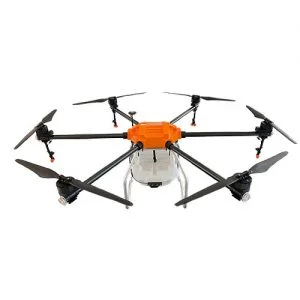
Regulatory Compliance
Operating sprayer drones involves adhering to various regulations and guidelines. Farmers must ensure that their drone usage complies with local laws and safety standards.
Initial Investment
The cost of purchasing and maintaining pesticide sprayer drones can be significant. Farmers need to evaluate the return on investment and the long-term benefits before committing to this technology.
Technical Skills
Using sprayer drones requires technical skills and knowledge. Farmers may need training to operate the drones effectively and manage the data collected during the spraying process.
Weather Conditions
Adverse weather conditions, such as high winds or heavy rain, can impact the performance of pesticide sprayer drones. Farmers must consider weather forecasts and plan their spraying operations accordingly.
Conclusion
Pesticide sprayer drones are revolutionizing modern agriculture by enhancing efficiency, reducing chemical use, and improving crop health. Their advanced features and capabilities provide significant benefits for farmers, enabling precise and effective pest and disease management. Despite some challenges, the advantages of pesticide sprayer drones make them a valuable tool in the pursuit of sustainable and productive agriculture.
FAQ
What are the primary benefits of using pesticide sprayer drones?
The main benefits include increased efficiency, reduced chemical use, improved crop health, and access to hard-to-reach areas.
How do pesticide sprayer drones improve efficiency?
Drones cover large areas quickly and accurately, reducing the time and labor required for traditional spraying methods.
What factors should be considered when choosing a pesticide sprayer drone?
Key factors include flight time, tank capacity, nozzle type, GPS accuracy, camera integration, and price.
Are pesticide sprayer drones cost-effective?
While the initial investment can be high, the cost savings from reduced chemical use and increased efficiency often result in a positive return on investment.
How do pesticide sprayer drones handle different weather conditions?
Adverse weather can impact drone performance. Farmers should monitor weather conditions and plan spraying operations to avoid challenges.
What training is required for operating pesticide sprayer drones?
Farmers need training to operate the drones effectively, manage data, and adhere to regulatory requirements.
Can pesticide sprayer drones be used for fertilization?
Yes, in addition to pesticide application, drones can be used for fertilization, providing targeted delivery of nutrients to crops.

